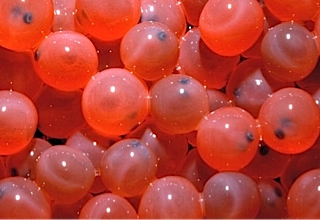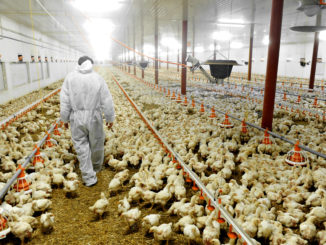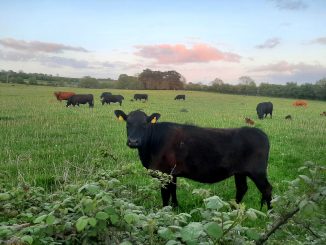The US Food and Drug Administration (FDA) closes its consultation period on genetically engineered salmon at midnight tonight. The application to license the world’s first GM species has met with stiff opposition across the US and has implications way beyond US federal authority.

The FDA was obliged to extend consultations that opened just two working days before Christmas 2012. During this process, nearly one and a half million objections have been raised to an application to breed AquAdvantage salmon using technology developed by AquaBounty Technologies.
In recent weeks Freedom of Information Act (FOIA) disclosures in the US have revealed flaws in the FDA’s framing of the approval process. According to the Center for Food Safety, federal scientists at the US Fish and Wildlife Service questioned the validity of an environmental impact assessment that limits itself to the immediate vicinities of facilities in Panama and Canada, for which eggs would be supplied from the US.
Andrew Kimbrell, executive director of Center for Food Safety warned that the disclosures: “…raise the question of whether the whole idea of growing these genetically engineered salmon in Panama was a regulatory ruse by the company designed to get approval.” The real intent, Kimbrell argues: “…was to sell these eggs to US companies to be grown in US facilities. It appears the FDA will have to go back to step one on this approval process and assess the impact of growing these salmon not in Panama but in several locations around this country.”
AquaBounty’s first approval application in 2010 generated more than 400,000 objections. The current application has attracted nearly 1.5 million objections from scientists, fish farmers, native American groups, doctors, ministers and students, as well as consumers.
“[The] FDA must put an end to this regulatory mess and acknowledge that the environmental risks and lingering food safety issues don’t justify approving this product,” declared the director of Food and Water Watch, Wenonah Hauter.
The FOI disclosures underline how shaky approval procedures can be when corporate interests are involved. Nor does it take into account the implications of the laboratory manipulation of life for the planet as a whole.





